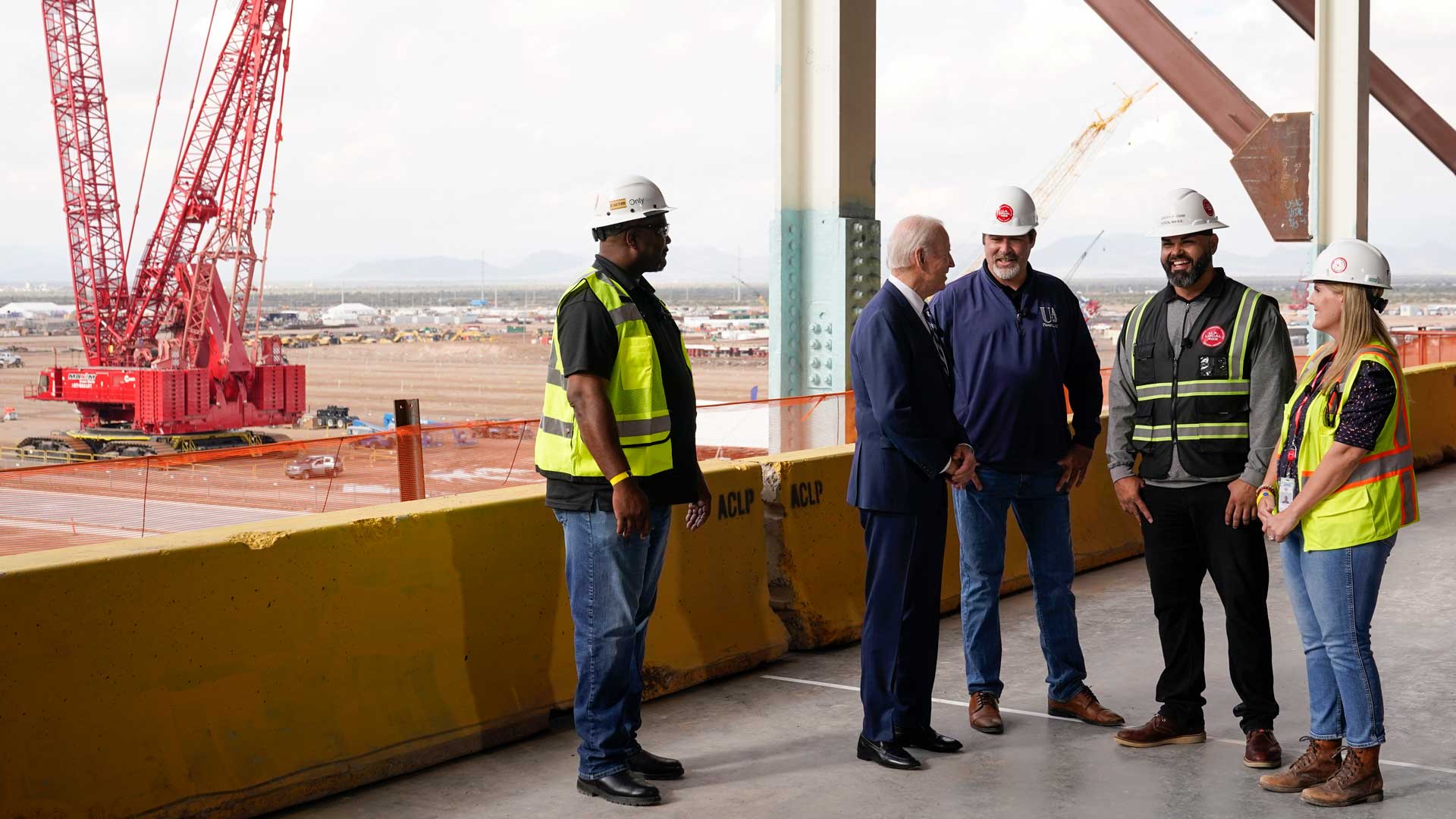 President Joe Biden tours the building site for a new computer chip plant for Taiwan Semiconductor Manufacturing Company, Tuesday, Dec. 6, 2022, in Phoenix.
President Joe Biden tours the building site for a new computer chip plant for Taiwan Semiconductor Manufacturing Company, Tuesday, Dec. 6, 2022, in Phoenix.
This story originally aired on “Marketplace” on April 30.
President Joe Biden has made clear that he wants more semiconductor chips to be made in America.
The CHIPS and Sciences Act, which he signed into law in August 2022, included $52.7 billion for semiconductor manufacturing, research and development. At the law’s signing ceremony, Biden said it would help the United States “lead the world in future industries and protect our national security.” Now, that money is starting to roll out.
 VIEW LARGER Kai Ryssdal speaks with Travis Laird, assistant training director for Arizona Pipe Trades. Pipefitters are in high demand amid the semiconductor boom.
VIEW LARGER Kai Ryssdal speaks with Travis Laird, assistant training director for Arizona Pipe Trades. Pipefitters are in high demand amid the semiconductor boom. As part of our ongoing series “Breaking Ground” — which explores how the Inflation Reduction Act, CHIPS and Science Act, and the Bipartisan Infrastructure Law are changing the role of government in the economy — “Marketplace” host Kai Ryssdal visited Phoenix with Washington Post columnist and Marketplace contributor Heather Long. The Arizona city has become known as the “Silicon Desert.”
“This is ground zero for the new economy,” Long told Ryssdal. “I mean, the people are here, the money’s coming here — [it’s] one of the fastest-growing areas of the country — and they’re about to get an even bigger infusion of cash from the federal government.”
The semiconductor industry is not new to Phoenix. Motorola, which opened a research lab in the city in 1949, began Phoenix’s foray into semiconductors; Intel has been making chips there since the 1980s. But with a boost from CHIPS Act funding, huge expansions are underway.
Intel, which received $8.5 billion in direct funding from the CHIPS Act, plans to invest $20 billion to build two chip factories in Arizona. The Taiwan Semiconductor Manufacturing Co., or TSMC, which also received CHIPS Act grants, is building three factories in Phoenix at a cost of more than $65 billion.
In a column for The Washington Post, Long explored the challenges that lie ahead as the Biden administration attempts to reshape the semiconductor industry in the United States.
Click the audio player above to hear the first installment of Ryssdal and Long’s reporting from Phoenix, which includes a visit to TSMC’s construction site and a training center for people critical to the completion of America's new semiconductor factories.

By submitting your comments, you hereby give AZPM the right to post your comments and potentially use them in any other form of media operated by this institution.